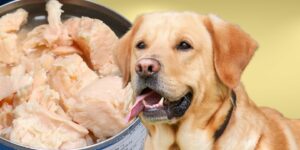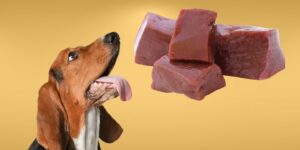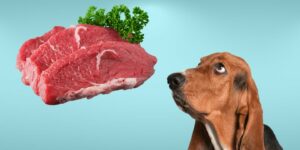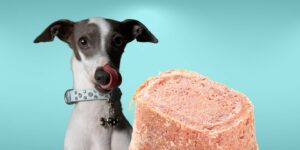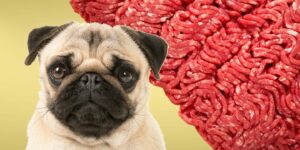Can dogs eat salami? No, you should avoid it. As its overconsumption is dangerous for dogs.
Introduction
What is Salami?
Salami is a popular cured sausage made from ground meat, fat, and various spices. It can be made from a variety of meats, such as beef, pork, or even venison. It is typically dry-aged, which gives it a distinct flavor and texture.
Why People Love Sharing Food with Their Dogs
As pet owners, we often have a strong bond with our furry companions and may feel tempted to share our favorite foods with them. However, it's crucial to remember that our dogs have unique dietary needs and giving them the wrong foods can cause serious health problems.
Risks of Feeding Salami to Dogs
Artificial Preservatives and Additives
Salami often contains artificial preservatives and additives that are intended to increase shelf life and enhance flavor. These substances can be harmful to dogs, causing digestive issues and even affecting their overall health.
Spices and Seasonings in Salami
The spices and seasonings used in salami can also pose a danger to dogs. For example, garlic and onion can be toxic to dogs, causing gastrointestinal upset and even damage to red blood cells.
Allergic Reactions to Salami Ingredients
Dogs can also develop allergic reactions to certain ingredients in salami. This can lead to symptoms such as itching, swelling, and difficulty breathing.
Long-term Effects of Salami Consumption in Dogs
Obesity in Dogs
Regularly feeding your dog salami can lead to obesity, as it is high in fat and calories. Obesity in dogs can cause various health issues, including diabetes, joint problems, and respiratory issues.
High Blood Pressure in Dogs
The high sodium content in salami can cause high blood pressure in dogs, which can increase the risk of heart disease, kidney disease, and stroke.
Risk of Heart Disease
The saturated fat in salami can contribute to the development of heart disease in dogs by raising cholesterol levels and increasing inflammation in the body.
Recognizing Signs of Illness After Salami Consumption
Symptoms to Watch For
If your dog has consumed salami, be on the lookout for symptoms such as vomiting, diarrhea, lethargy, increased thirst, and signs of abdominal pain.
When to Seek Veterinary Care
If your dog is showing any of the above symptoms or you are concerned about their health after consuming salami, seek veterinary care immediately.
Safe Human Foods for Dogs
Fruits and Vegetables Dogs Can Enjoy
Some safe fruits and vegetables for dogs include apples, bananas, carrots, and green beans. Make sure to remove any seeds or pits before feeding them to your dog.
Lean Meats and Proteins for Dogs
Dogs can benefit from lean meats such as chicken, turkey, and fish. Be sure to cook these meats thoroughly and remove any bones before offering them to your dog.
How to Train Your Dog to Resist Begging for Human Food
Establishing Boundaries
Establish clear boundaries by never feeding your dog human food from your plate or allowing them to beg during mealtime.
Rewarding Good Behavior
Reward your dog with praise and dog-safe treats when they exhibit good behavior and resist begging for human food.
Consistency in Training
Consistency is critical in training. Ensure all household members understand and enforce the rules regarding feeding your dog human food.
Frequently Asked Questions
Can Dogs Eat Other Types of Deli Meats?
Most deli meats contain high levels of sodium and preservatives, which can be harmful to dogs. Opt for healthier sources of protein like lean meats or dog-specific treats.
What Should I Do If My Dog Accidentally Ate Salami?
Monitor your dog closely for any signs of discomfort or illness. If your dog shows concerning symptoms or you are worried about their health, contact your veterinarian.
How Can I Make Homemade Dog Treats?
Many homemade dog treat recipes use simple, dog-safe ingredients like ground meat, pumpkin, or peanut butter. Look for veterinarian-approved recipes to ensure your dog receives tasty and nutritious treats.
Final Thoughts
The Importance of a Balanced Diet for Dogs
Feeding your dog a balanced diet that meets their specific nutritional needs is essential for maintaining their overall health and well-being. Avoid giving them foods that can pose a health risk, such as salami.
The Role of Pet Owners in Ensuring Proper Nutrition
As pet owners, it is our responsibility to provide our dogs with the appropriate diet and monitor their food intake closely. Consult your veterinarian for guidance on your dog's dietary needs and speak with them before introducing new foods or treats.







